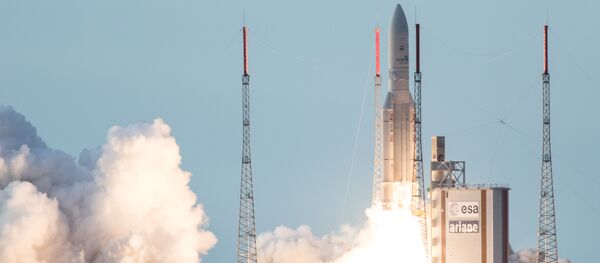Moving a step closer to achieving its objective of sending humans to space on its own, the Indian Space Research Organisation (ISRO) today announced the setting up of a human space flight centre in the southern city of Bengaluru in the state of Karnataka.
READ MORE: WATCH: India Succesfully Launches Military Communications Satellite
India's maiden manned mission, named Gaganyaan, will have a three-member crew. Initial training for the mission is set to be held domestically, but advanced training could be done abroad, perhaps in Russia, ISRO head K Sivan told reporters in an annual press conference at the agency's headquarters in Bengaluru.
Chairman, @isro Dr K Sivan addresses the media at #AntarikshBhavan today, in which he briefed about all major #ISROMissions scheduled for this year and ahead
— PIB India (@PIB_India) January 11, 2019
Read More: https://t.co/BgzfmWfCdW pic.twitter.com/miuXc8oFSD
"[The] Human Space Program is going to be a major expansion of the ISRO program. This is a major expansion because it is not only launching human into space but a space station. The human programme is a major turning point…. We have worked out a new management structure which is called Human Space Flight Centre. This centre will look out all the work related to human space flight program," Sivan said.
"Once we complete this the manned mission will happen in December 2021. The entire team is geared up to achieve this target," Sivan said.
READ MORE: India’s First Hyper-Spectral Imaging Satellite Reaches Earth’s Orbit
The Indian government has already approved a budget of around $1.4 billion for its ambitious manned spaceflight mission, which, on successful completion, would put India among a select group of countries in the world having reached this landmark — India would become the fourth nation after Russia, the US and China to achieve the feat.
The ISRO has completed the development of th GSLV Mk-lll launch vehicle that has the necessary payload capability to launch a 3-member crew module into low-earth orbit. The space agency has also developed and tested a crew escape system, which is an essential piece of technology for human space travel.



